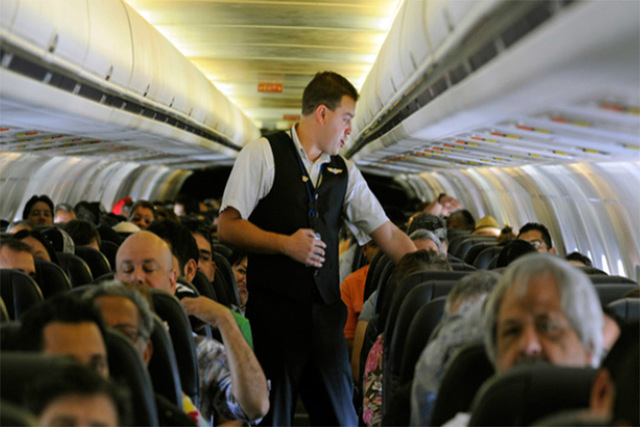Flight crews could be at higher risk for skin cancer
NEW YORK — Pilots and flight attendants may be at an increased risk of developing the most deadly form of skin cancer, suggests a new analysis.
While the study cannot pinpoint why flight crews are at higher risk, the researchers suggest it could be the result of greater exposure to ultraviolet (UV) radiation, which causes damage to the DNA in skin cells, at high altitudes.
“This is very worrisome and awareness needs to increase and protective measurements must be undertaken,” said the study’s lead author, Dr. Martina Sanlorenzo from the University of California, San Francisco.
Pilots and other members of the cabin crew should be aware of the increased risk, she told Reuters Health in an email. Additionally, they should get skin checks and protect themselves from UV radiation.
Skin cancer is the most common form of cancer in the U.S., Sanlorenzo and her colleagues write in a paper online September 3 in JAMA Dermatology.
Over 3.5 million Americans will be diagnosed with skin cancers in 2014, according to the American Cancer Society. About 76,000 people will be diagnosed with melanoma, which is the type of skin cancer that is most likely to lead to death.
Past studies have suggested that airline pilots and other flight crew members are prone to getting more skin cancers, but the association was poorly understood, the researchers write.
For the new analysis, they combined data from 19 previous studies published between 1990 and 2013. In total, they had data on over a quarter million people.
The researchers used a measure known as standardized incidence ratio, which helps gauge whether the cancer cases observed among specific groups of people are more or less than what would be expected in the general population.
According to the National Cancer Institute, the average American has about a 2% risk of developing melanoma during his or her lifetime.
Among participants in the 19 studies, the researchers found that melanoma was about twice as common among pilots and flight crew members than would be expected in the general population.
The researchers caution that they can’t say why cabin crews may be more likely to develop melanoma. It could be due to greater exposure to solar radiation as altitude increases and the protective barrier of the atmosphere thins.
There may, however, be other unknown factors among cabin crews, apart from UV exposure, that affect their melanoma risk, the study team writes.
The researchers don’t have any data on airplane passengers, but Sanlorenzo notes that “frequent flyers that fly as often as cabin crew should get regular skin checks and protect themselves from UV radiation.”
She suggested that the U.S. Federal Aviation Administration should take more measurements of how much UV radiation pilots and cabin crews are exposed to inside commercial planes, versus, for example, aircraft with special radiation-blocking windows.
“A prospective study could be done studying melanoma incidence in pilots/cabin crew flying airplanes where windows block UVA and UVB (radiation) entirely,” she said.
UVA and UVB radiation from the sun damage skin-cell DNA and are partly responsible for skin aging and for promoting skin cancer.






















